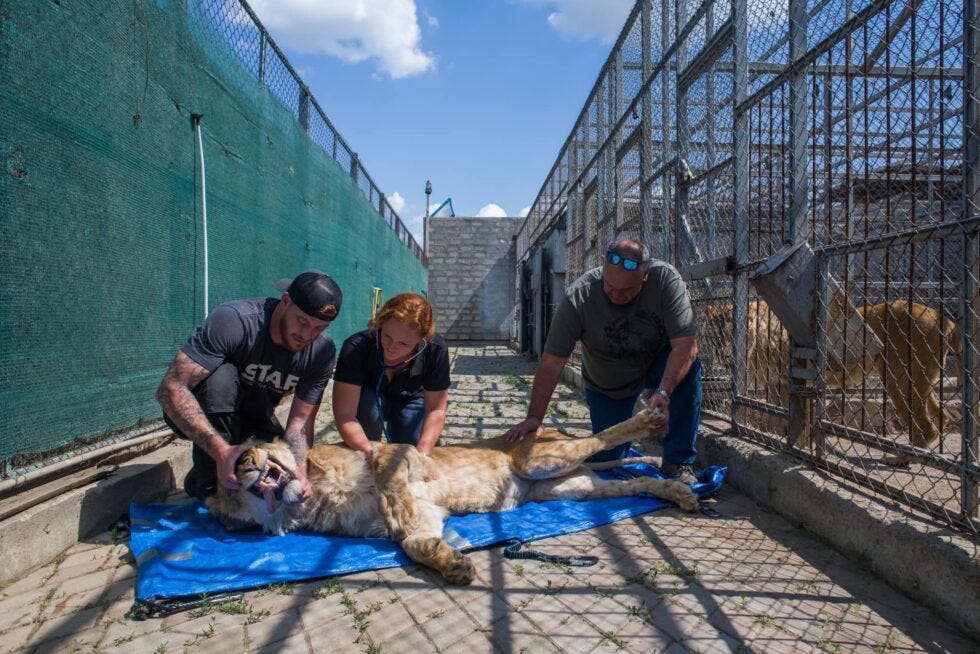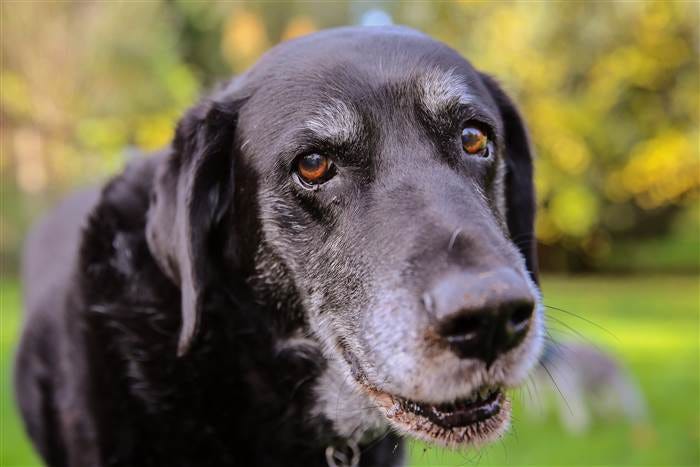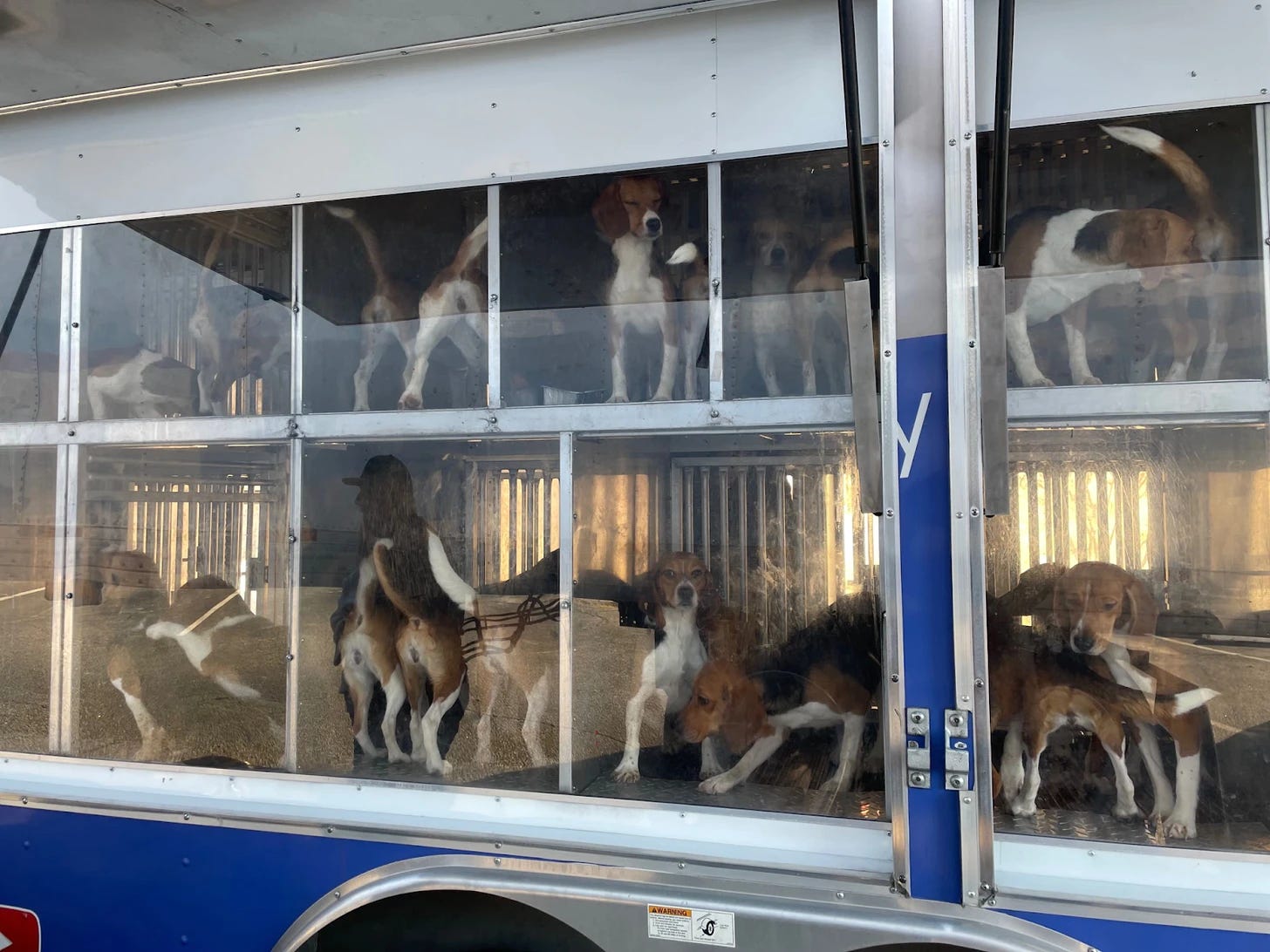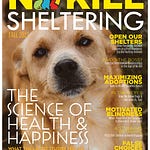
These are some of the stories making headlines in animal protection:
Subscribers can also listen to it above as a podcast, which includes extended commentary on many of the issues, including the history and success of laws making it illegal for shelters/pounds to kill animals if qualified rescue groups are willing to save them.
The owner of a Petland franchise is suing the City of Dallas, saying his store will be forced to close due to a new ordinance making it illegal for pet stores to sell commercially-bred dogs and cats. The store’s owner, who has sold thousands of puppies, “claims the measure discriminates against the store and violates the Texas Constitution.” Lawsuits of this kind have failed in other states.
The new Dallas law, which takes effect in November, serves three purposes:
Encouraging people to adopt/rescue;
Educating the community about dog and cat (and rabbit) abuse in mills;
Stopping that abuse.
Laws of this kind work. “Nebraska Department of Agriculture records show that half of the state’s commercial dog and cat breeders have left the business” because of retail pet store sales bans.
Pet stores generally get their animals from Commercial Breeding Enterprises (CBEs), commonly known as ‘puppy mills.’ And CBEs engage in systematic neglect and abuse of animals, leaving severe emotional and physical scars on the victims. One in four former breeding dogs have significant health problems, are more likely to suffer from aggression, and many are psychologically and emotionally shut down, compulsively staring at nothing.
The store owner, by contrast, claims the puppies he sells are “from United States Department of Agriculture licensed breeders,” but that does not mean they are not neglectful or abusive mills. The Office of the Inspector General, for example, found that the USDA fails in its mission to protect dogs in puppy mills by choosing to “cooperate” with puppy mills rather than protect dogs by punishing abusers. As a result,
The agency chose to take little or no enforcement actions against violators,” including repeat violators. In one case, USDA inspectors found “dead dogs and starving dogs that resorted to cannibalism, dogs that were entirely covered in ticks, kennels overrun with feces and urine, and food infested with cockroaches. At the facility in which the starving dogs were found, the [USDA] inspector did not remove the surviving dogs, and as a result twenty-two more dogs died.
The owner claims the new ordinance will also put him out of business, but this, too, may be misleading. Many pet stores thrive by partnering with rescue groups and shelters. How? Whenever anyone adopts an animal in these stores, the store benefits by gaining a customer who buys their needed supplies there and then, and going forward. PetSmart, Petco, and other pet stores have been doing this for years. It’s a classic win-win.
In addition to “an injunction preventing the ordinance from going into effect,” the plaintiff seeks “more than $1 million in damages.” He deserves nothing.
As more people turn to rescue and adoption and more shelters embrace progressive policies, the number of communities placing over 95% and as high as 99% of the animals is increasing:
Rifle, CO, reported a 97% placement rate for dogs and 96% for cats.
Sante Fe, NM, reported a 95% placement rate for dogs and 94% for cats.
These communities and national data prove that animals are not dying in pounds because there are too many, too few homes, or people don’t want the animals. They are dying because people in those pounds are killing them. Replace those people, implement the No Kill Equation, and we can be a No Kill nation today.
Animals in zoos, shelters, community pets, wild animals, and animal companions remain under mortal threat from Russia’s brutal invasion of Ukraine. As reported earlier, Ukrainian Railways has transported over 100,000 animals away from warzones and to safety.
Likewise, a group of British military veterans recently stepped in to rescue nine lions trapped in the Odesa zoo. For the seven adult lions and two cubs, “it was ‘do or die’ given that they ran a very real risk of dying of starvation” and “Russian missiles could also wipe out the animal enclosures.” The lions are now safe in Romania.
Once again, during this heartbreaking, humanitarian catastrophe — one distinguished by anachronistic images and stories that harken back to the darkest moments in European history — I find inspiration not only in the breathtaking courage with which the Ukrainians and their allies are standing against tyranny and for the cause of freedom, but for the “Life, Liberty and the pursuit of Happiness” of their non-human family members, too.
Glory to Ukraine.
The worldwide adoption of pets is driving growth in the veterinary services market, with some segments experiencing a 9% growth rate annually. In the U.S. alone, spending “hit $103.6 billion in 2020, up 6.7% from the preceding year. Veterinary care accounted for $31.4 billion of the total, up 7.2% from the preceding year.”
“Today more than ever, pet owners view their pets as irreplaceable members of their families and lives, and it’s thanks to this that we continue to see such incredible growth within the pet care community,” with the senior animal the fastest-growing segment of the pet population. Not only are people keeping animals longer, not only are the animals living longer, but two-thirds of pet owners in the U.S. will “adopt a senior dog as they believe they’re already trained and better behaved.” And that has spawned significant growth in geriatric veterinary medicine, with specialized care and new treatments.
A new report shows the vegan chocolate confectionery market is growing at 15% per year. That is likely to continue and even accelerate as consumers are demanding humane, plant-based products, and companies like Mars and Hershey are delivering by “exploring new vegan ingredients” for their popular candy bars. Driving the growth are concerns about animal welfare, the adverse health effects of an animal-based diet, and the environmental impact of dairy-based products on climate change.
(While you wait for an official plant-based snicker’s bar, the All American Vegan Candy Cookbook, my cookbook, has unofficial but delicious veganized versions of America’s most popular candies, including Snickers, Reese’s Peanut Butter Cups, Milk Duds, Twix, and more.)
Meanwhile, the vegan egg market is growing at almost 9% per year, driven by the same factors: cruelty, health, and the environment. Every year, for example, six billion baby male chicks are ground up alive shortly after birth in giant macerators because they serve no purpose to the egg and “broiler” chicken industry. And while some countries are banning the live-shredding of baby chicks by employing technology that can sex chicks before they hatch, this technology doesn’t spare the females from being exploited for the egg industry or from being eaten. Enter vegan eggs.
Vegan “eggs” are not only good for chickens, they are good for people. Researchers at Northwestern University, for example, found that “For every half a [chicken] egg consumed per day, people had a 6 percent higher risk of developing cardiovascular disease, and an 8 percent higher risk of death over 17.5 years.” These negative health impacts do not exist with their plant-based counterparts.
As reported earlier, the federal government filed a lawsuit against Envigo, “a company that runs a Virginia facility breeding dogs for research of violating animal welfare law and recently seized at least 145 beagles found to be in ‘acute distress’.”





















